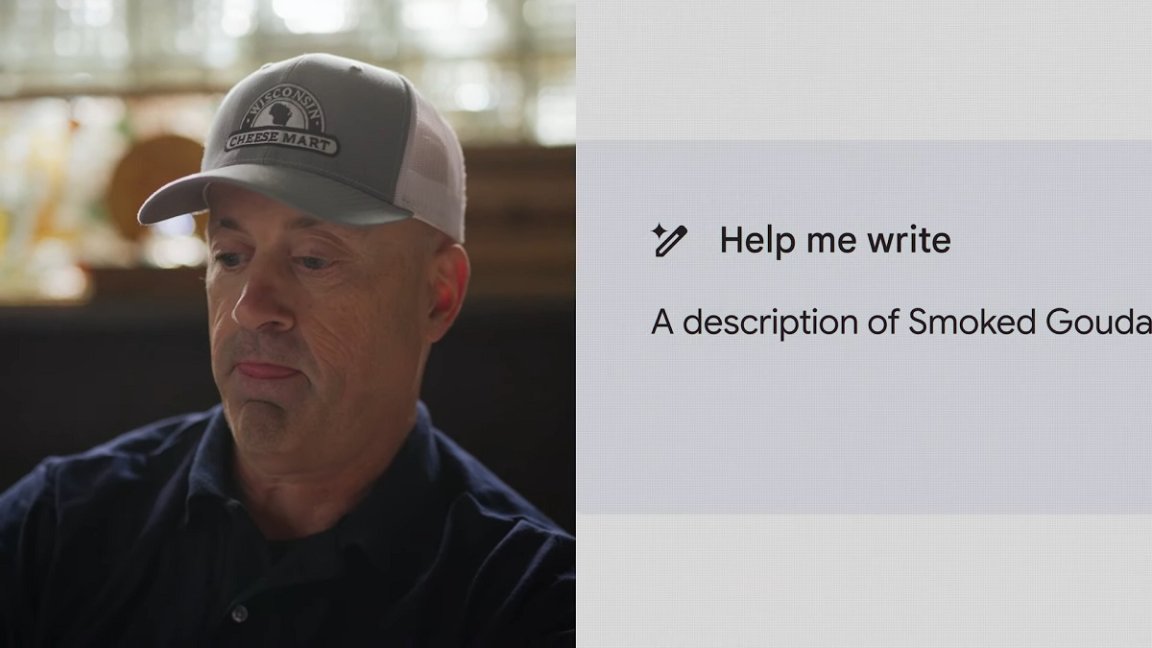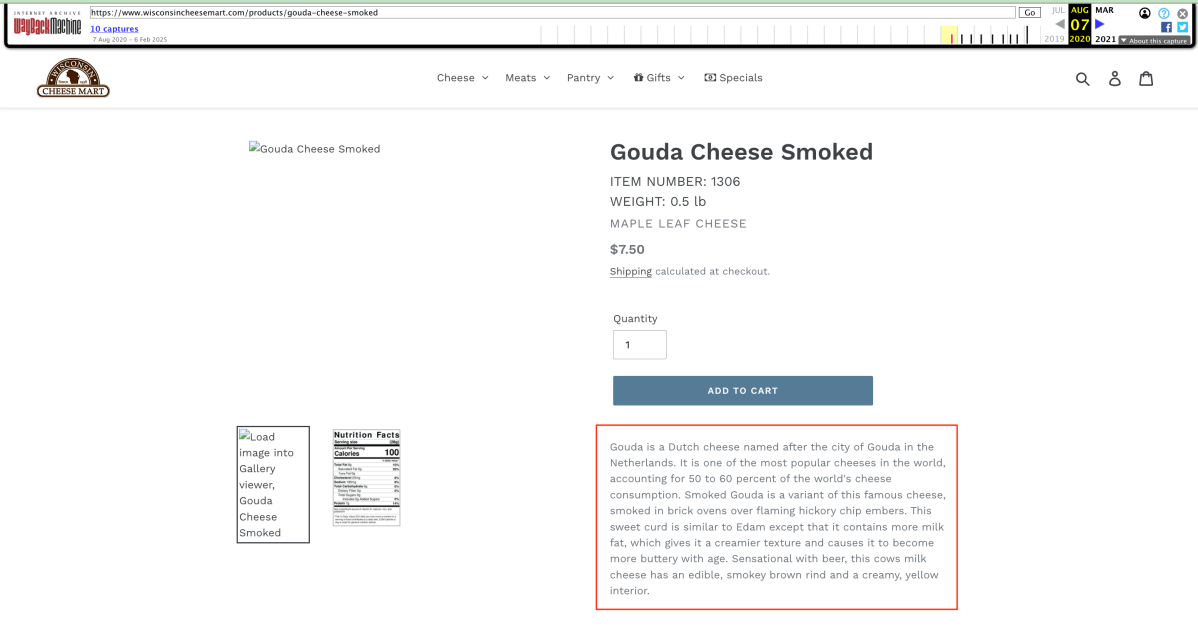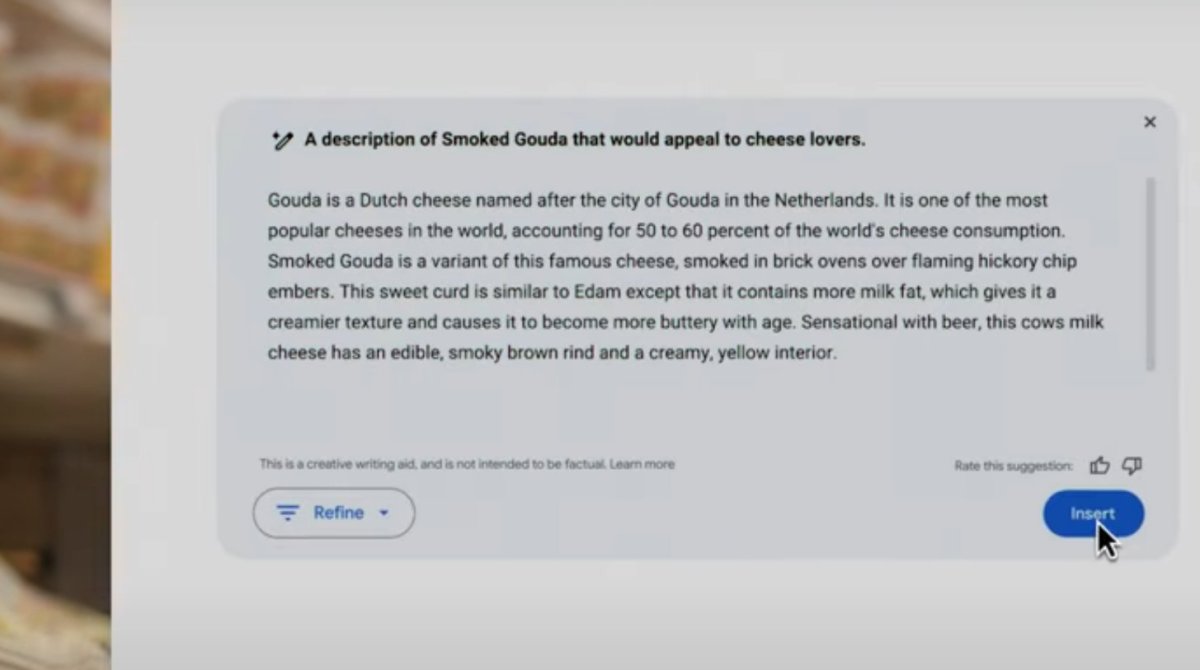
Last week, Google released a Super Bowl ad that showed off its AI model, Gemini, generating product descriptions for a local Wisconsin cheese mart.
The ad quickly drew online scrutiny, as Gemini had seemingly generated an erroneous fact about the purported worldwide fervor for gouda; it said that gouda accounts for “50 to 60 percent” of all global cheese consumption, and as an expert told The Verge, that simply isn’t true.
Google executives defended the accuracy of the statistic at first, before quietly editing YouTube version of the ad to correct the error (and seemingly running afoul of Google-owned YouTube’s policies in the process.)
But as it turns out? Gemini appears not to have even generated the product description at all. Or, if it did cook up the test, it did so by fully plagiarizing the cheese mart’s existing web copy, which was published years before Gemini was even released or AI was even making much of a splash.
As the Verge first reported, though the Google ad is crafted in a way that seemingly shows Gemini generating entirely new web copy for the business to use, archived versions of the cheese mart’s website show that the Wisconsin business has been using the exact same product description since at least 2020.
Here’s the archived webpage:

And here’s the original text that appeared in the Super Bowl ad, as nabbed by travel blogger Nate Hake.

OpenAI’s ChatGPT wasn’t released until November 2022, and the earliest consumer-facing iteration of Google’s Gemini, the text-generating chatbot it called Bard, wasn’t launched until early 2023.
Needless to say, the situation is beyond bizarre. Either Google faked the ad entirely, or prompted its AI to generate the web page’s existing copy word-for-word, or the AI was prompted to come up with original copy and instead copied the old version. In the publishing industry, that’s referred to as “plagiarism.”
Whatever the case, it’s a bad look — not to mention just incredibly odd. Why didn’t Google just trust its own technology, which it’s currently jamming into each and every product it possibly can, for a simple Super Bowl slot?
When we asked Google about the retroactive editing, a spokesperson for the search giant confirmed that the ad was altered after Google took the time to consult with the cheese mart owner.
“After the question came up about the Gouda stat, we spoke with the owner of the Wisconsin Cheese Mart to ask him how he would handle it,” said the spokesperson. “Following his suggestion to have Gemini rewrite the product description without the stat, we updated the UI to reflect what the business would do.”
And yet! The altered ad isn’t entirely different. Only the first two sentences were changed, meaning that half of the allegedly AI-generated copy was still written by a human, years before e-commerce shops would’ve gotten their hands on Gemini.
We’ve reached out to Google for comment, but didn’t hear back by the time of publishing.
More on Google’s AI vision: Google Is Stuffing Annoying Ads Into Its Terrible AI Search Feature